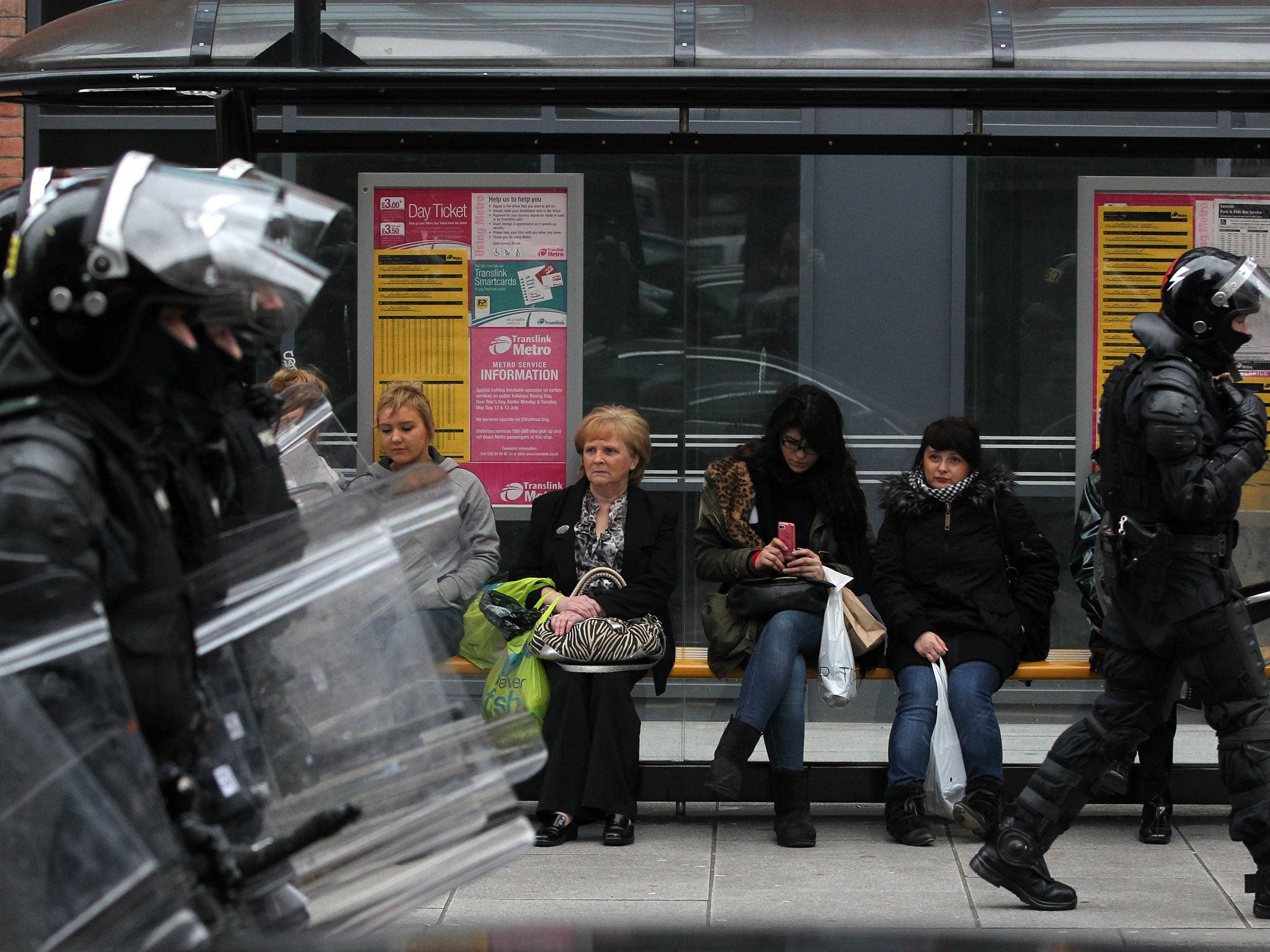Unionist fears have been hijacked by paramilitaries to bolster youth support in Belfast
Young people in Belfast are already facing high unemployment and a widespread feeling of disenfranchisement. This is the last thing they need

If London was shamed by the images of its youths running riot on the streets in the summer of 2011, Belfast can empathise as we move into 2013 and confront the tensions heightened by a controversial vote on the union flag last month. On Wednesday, the violence which had raged for almost a week temporarily subsided as the flag was raised in honour of the Duchess of Cambridge’s birthday, but the issue remains far from resolved. The city’s decidedly fractious peace has again been thrown into jeopardy, as divisions centring on the double axis of religion and class are once more propelled to the forefront of public discussion.
Violent clashes have flared between the police and rioters – some as young as ten or eleven years old. In east Belfast, the interface between unionist areas and nationalist enclave the Short Strand has witnessed numerous outbreaks of rioting, with several teenagers amongst those arrested.
The unprecedented level of youth involvement in the recent trouble stands as evidence that more than trace amounts of sectarianism remain in the collective psyche, passed down from generation to generation. Despite efforts towards moving on from a fraught past, deeply ingrained prejudices continue to drive adolescents onto the streets despite the fact that their generation wasn’t around to experience the Troubles of 1970s Northern Ireland first hand.
Doubtlessly, those raised in the unionist tradition find themselves in a weakened demographic position, as the Catholic population grows (in Belfast, 49 per cent of people identify as Catholic, in comparison with a Protestant population of 42 per cent).
However both unionist and nationalist youths are faced with greater concerns yet – lack of education, opportunity, and high youth unemployment culminating in the widespread feeling of disenfranchisement amongst the nation’s young people. The current economic crisis has led 1 in 7 young people in Northern Ireland to feel like they have ‘no future’, with 1 in 10 reporting that they are struggling to cope with day-to-day life.
The current generation is one who often feel they have nowhere to turn and nothing to lose, with little to which to relate in the Stormont politics they perceive as ‘out of touch’. For a unionist youth this disempowerment - coupled with the fears surrounding erosion of national identity – has provided the catalyst for the current riots. As one former rioter told BBC Newsbeat this week, children in Belfast feel they have “nothing else to do” but take to the streets.
Admittedly, the protests currently being levelled hardly mirror the primal scream of democracy aspired to by the Occupy movement, given that the rioters are actually campaigning against the democratic process which passed the initial motion (see: this Facebook parody page).
Yet although the riots may not be justifiable, they can hardly be considered to have arrived out of the blue - in many respects, the symbolic issue of the flag is little more than the straw that broke the camel’s back.
If the current situation was a disaster waiting to happen, paramilitaries have been quick to hijack the protests to further their own aims. As Police Chief Constable Matt Baggott noted on Monday, “Senior members of the Ulster Volunteer Force in east Belfast as individuals have been increasingly orchestrating some of this violence”, adding that they were doing so in an attempt to further, “their own selfish motives”.
It would seem that the “motives” in question constitute exploiting the spreading sentiment of vulnerability in some quarters of unionism to recruit a new generation of angry young men and women, thus restoring their waning popularity. Such paramilitary agitators seek to topple the country’s delicate balance of peace to gain a stronger foothold in disadvantaged communities - allowing these toxic and anachronistic attitudes to infiltrate the mindsets of our youth will risk setting society back even further.
For the people of Northern Ireland, this is a watershed moment. The riots of the past month represent the most challenging situation yet faced by a fledgling assembly – their response will be a test of their true strength. Unionism may be in disarray, but now more than ever, Northern Ireland needs a government fit enough to tackle the riots while offering those involved a viable alternative.
Join our commenting forum
Join thought-provoking conversations, follow other Independent readers and see their replies
Comments
Bookmark popover
Removed from bookmarks